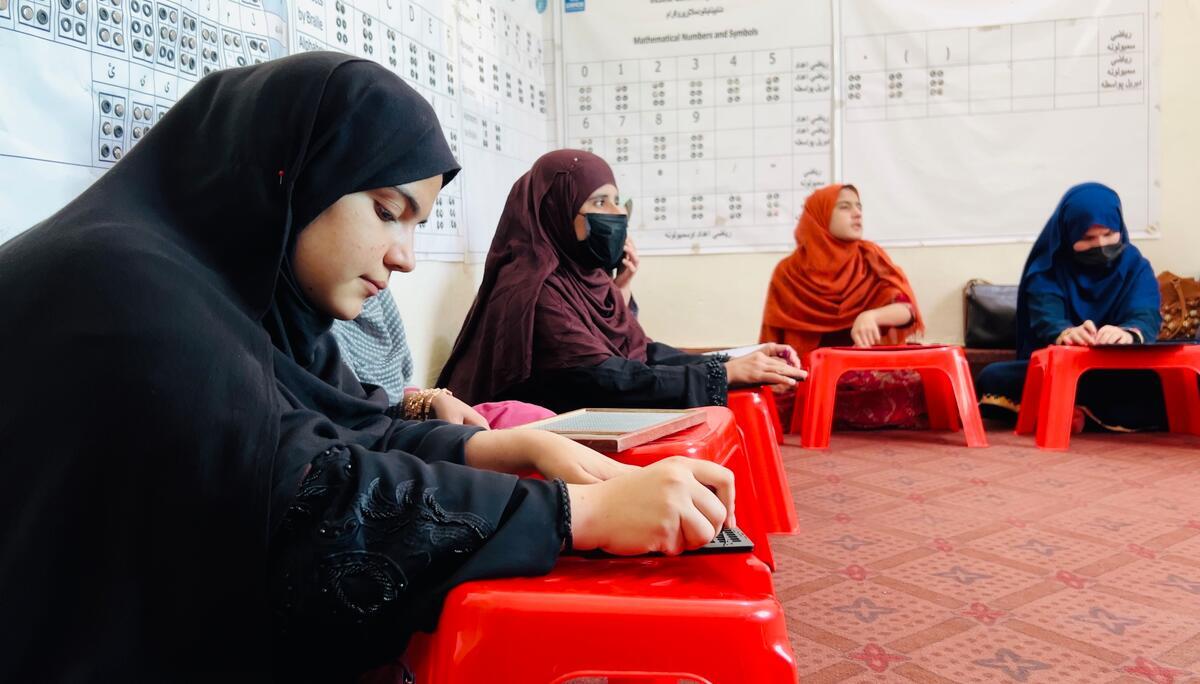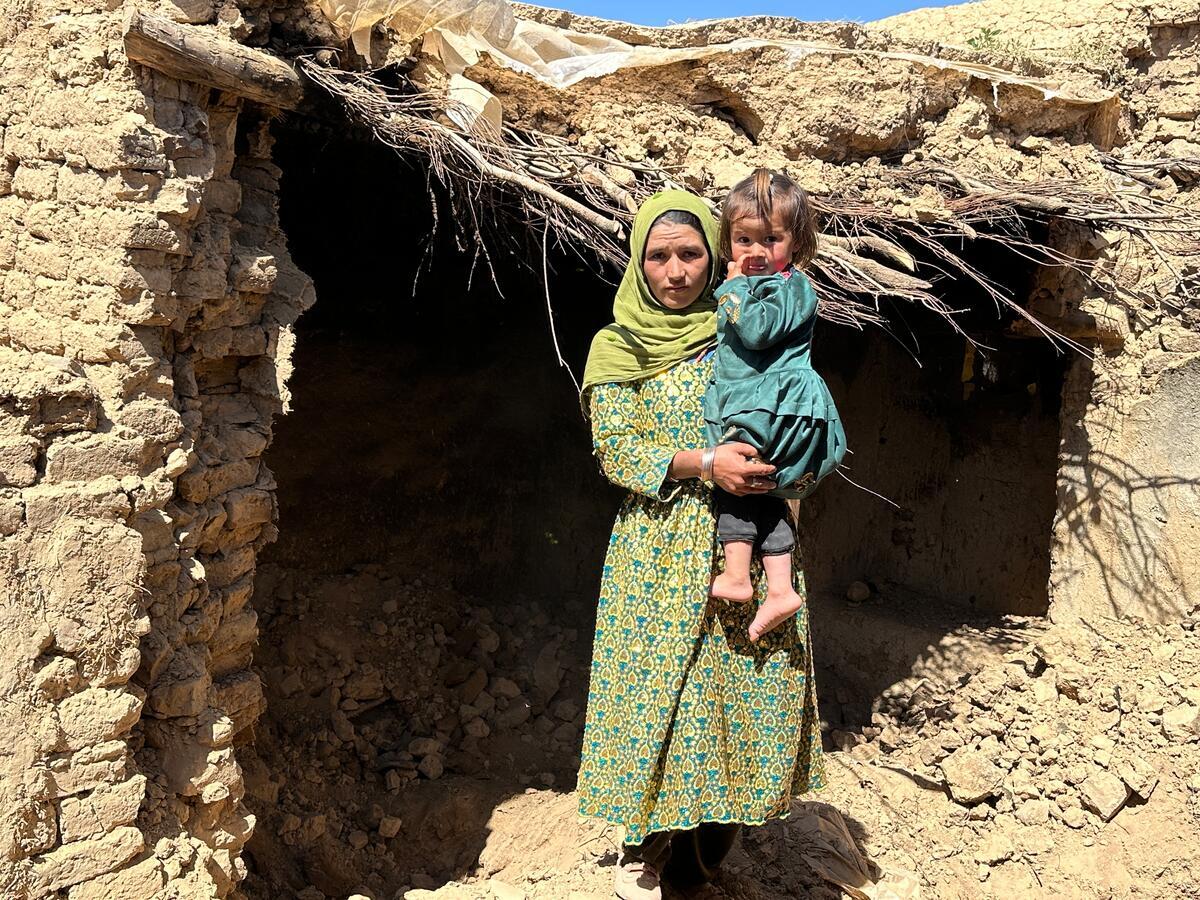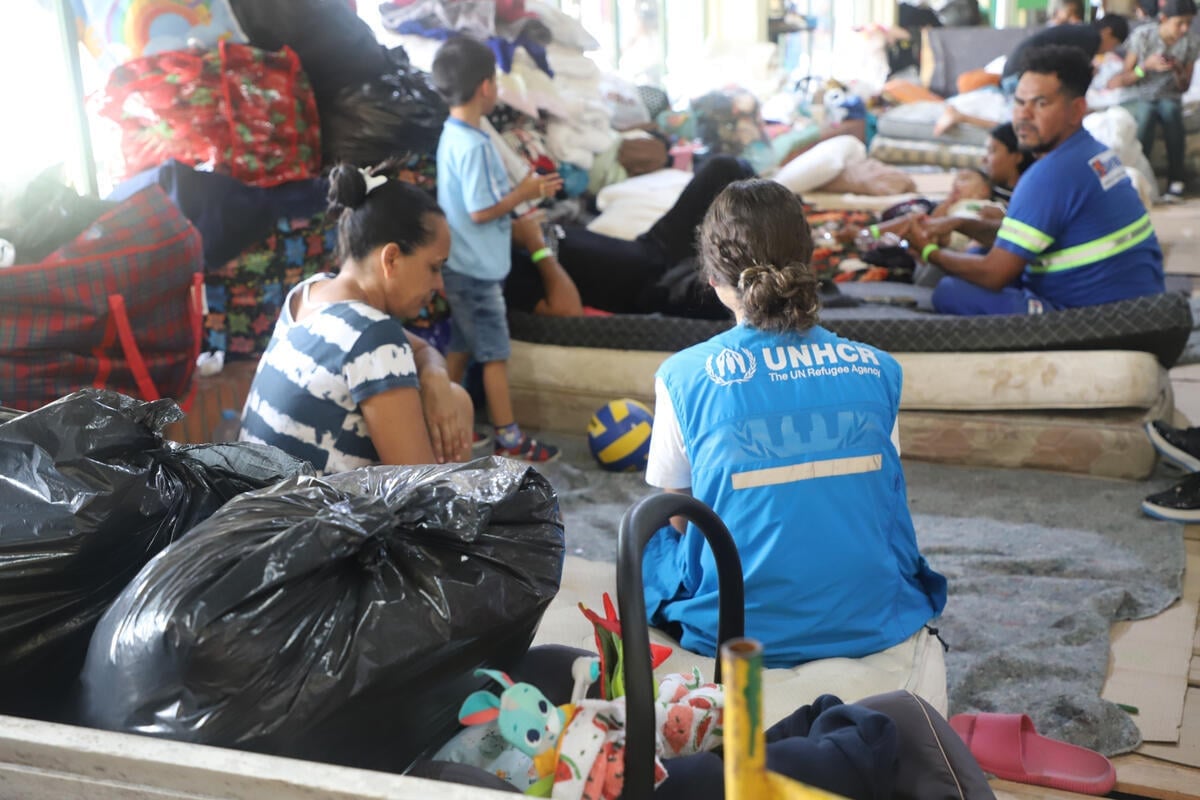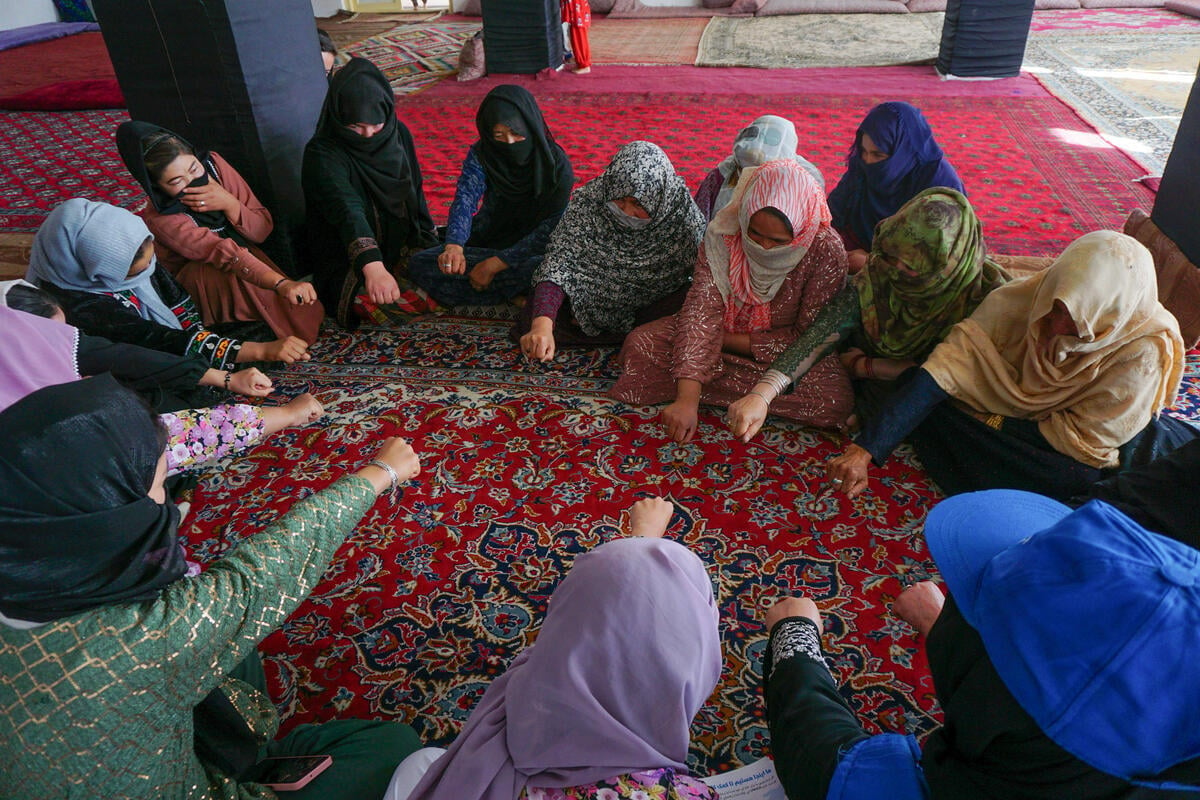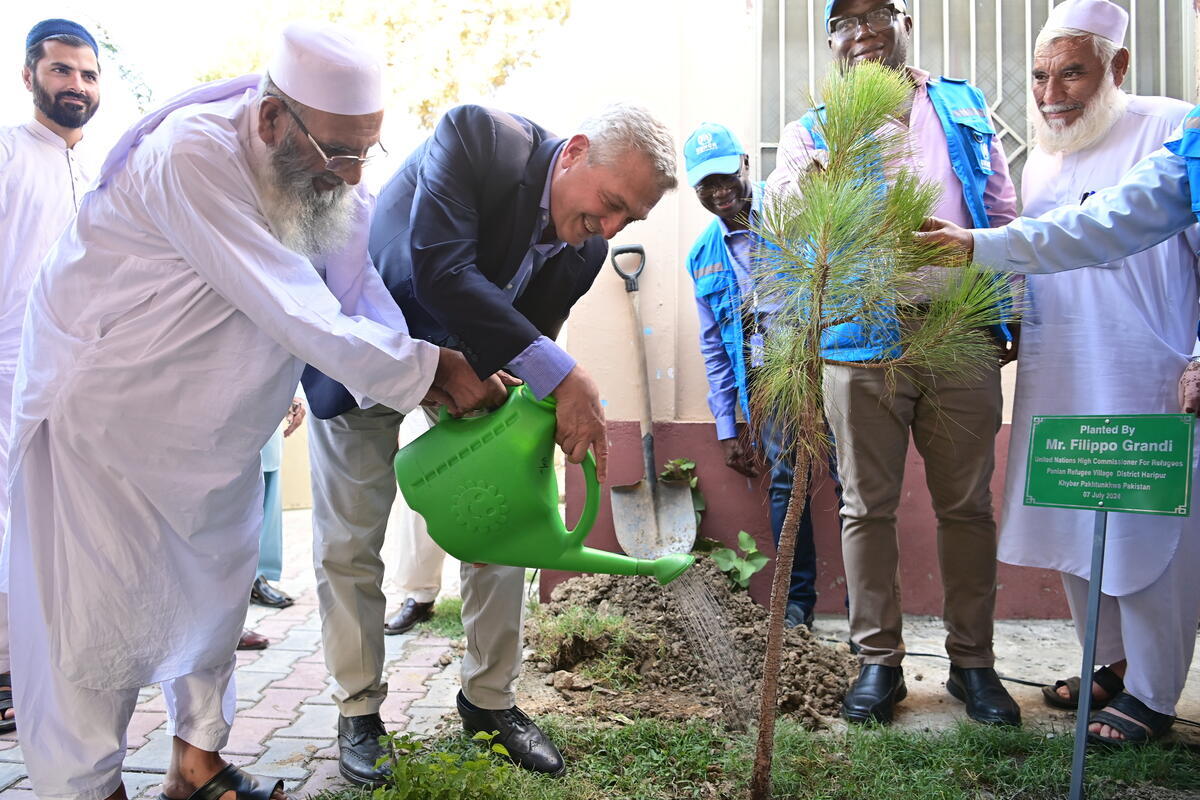Pakistan: enhanced voluntary repatriation programme for "new camp" Afghans completed
Pakistan: enhanced voluntary repatriation programme for "new camp" Afghans completed
UNHCR has completed its enhanced voluntary repatriation programme for Afghan refugees in 15 temporary camps - known as "new camps" - in Pakistan's border area with Afghanistan. The new camps were set up in North West Frontier Province and Balochistan to house Afghans fleeing the fighting in their country following the events of 11 September 2001.
Under the enhanced aid package, 82,000 refugees who repatriated from the "new camps" in the past two months received a tent and three-month supply of food, as well as travel and food grants. The last trucks, carrying 1,650 refugees from Chaman, crossed the border into southern Afghanistan yesterday (Monday), marking the end of the programme.
UNHCR and other partners are ending assistance to the "new camps" this month, following a decision reached in July with the Pakistani authorities. It was difficult and expensive to provide aid in the camps, mainly located in isolated spots near the border. There were also increasing security concerns because of unrest in neighbouring areas of Afghanistan.
All nine "new camps" in North West Frontier Province are now empty, with the majority of the residents having chosen to return to Afghanistan. Tomorrow (Wednesday), UNHCR will start registering refugees who do not wish to repatriate, but have chosen instead to move to another camp (Mohammed Kheil) in Balochistan. The relocation exercise is scheduled to start at the end of this week, and should be completed within a few days.
UNHCR has assisted 2.25 million Afghans return to their homeland from Pakistan since the start of the voluntary repatriation programme in March 2002. Another million Afghans have returned from Iran in the same period.


